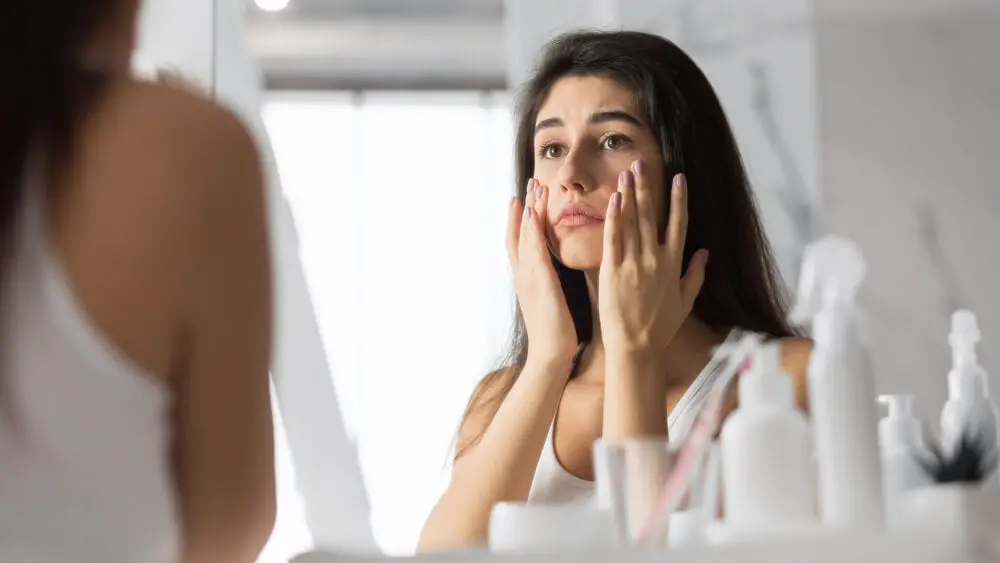How to Choose Sunscreen for Face: Beauticians' Guide
As a beautician, understanding how to choose sunscreen for face is not just about recommending a productit's about protecting your clients' skin health and enhancing their natural beauty. The importance of sunscreen can't be overstated, especially for facial skin which is more sensitive and exposed than other areas. In this guide, we will explore the nuances that beauticians should consider when selecting the right sunscreen for their clients.

The Importance of Sunscreen in Skincare
Sunscreen is a crucial component of any skincare routine. It protects against the harmful effects of UV radiation, which is a major contributor to premature aging, sun spots, and even skin cancer. For beauticians, advising clients on sunscreen is not just about preventing sunburn; it's also about preserving the skin's youthful appearance and preventing long-term damage.
According to the American Academy of Dermatology, daily use of a broad-spectrum sunscreen with an SPF of 30 or higher can reduce the risk of developing squamous cell carcinoma by about 40 percent, and lower melanoma risk by 50 percent. This is why it's essential for beauticians to be well-versed in the best practices for sunscreen use.
Understanding Sunscreen Formulations
When it comes to how to choose sunscreen for face, the formulation is key. Sunscreens are generally available in two types: chemical and physical. Chemical sunscreens absorb UV rays, while physical sunscreens (also known as mineral sunscreens) reflect them. Each type has its own set of benefits and potential drawbacks.
Chemical vs. Physical Sunscreens
Chemical sunscreens are often preferred for everyday use because they are typically lighter and less likely to leave a white residue. However, they can sometimes irritate sensitive skin. On the other hand, physical sunscreens are less likely to cause irritation and are effective immediately upon application. They are ideal for clients with sensitive skin or those prone to acne.
Beauticians should consider their clients' skin types and potential reactions when recommending a sunscreen. For example, recommending a physical sunscreen might be best for clients with sensitive skin, whereas a chemical sunscreen could be suggested for those needing a lightweight, everyday option.
Key Ingredients to Look For
When advising on how to choose sunscreen for face, ingredients are a crucial factor. Look for sunscreens that contain zinc oxide and titanium dioxide, which are common in physical sunscreens. For chemical options, ingredients such as avobenzone, octisalate, and octocrylene are effective.
Additionally, some sunscreens include antioxidants like vitamin E and C, which can provide extra protection against environmental damage. For more information on the benefits of vitamin E for the skin, check out this [article](https://livananatural.com/blogs/news/what-does-vitamin-e-do-for-skin).
SPF and Broad-Spectrum Protection
SPF, or Sun Protection Factor, is a measure of how well a sunscreen will protect skin from UVB rays, the kind of radiation that causes sunburn and contributes to skin cancer. A higher SPF offers more protection, but it's important to understand that no sunscreen can block 100% of UVB rays. A broad-spectrum sunscreen, on the other hand, provides protection against both UVA and UVB rays, which is essential for full coverage.
Special Considerations for Facial Sunscreens
Beauticians should also consider the unique needs of facial skin when recommending sunscreens. For example, clients with oily skin might benefit from an oil-free, mattifying formula, while those with dry skin might prefer hydrating sunscreens that contain moisturizing ingredients.
For clients dealing with specific skin issues, such as keratosis pilaris or dull skin, integrating a sunscreen that addresses these concerns is ideal. You can learn more about skincare for conditions like keratosis pilaris [here](https://livananatural.com/blogs/news/winter-skincare-for-keratosis-pilaris).
Application Tips for Optimal Protection
Even the best sunscreen won't be effective if it's not applied correctly. Beauticians should advise their clients to apply sunscreen at least 15 minutes before going outside and to use about a teaspoon-sized amount for the face. Reapplication is crucial, especially after sweating, swimming, or towel drying.

Conclusion: Making the Right Choice
Choosing the right sunscreen for facial skin is a vital part of any skincare regimen. As a beautician, your role is to guide your clients towards products that not only protect but also complement their skin type and lifestyle. Remember, the best sunscreen is one that your client will use consistently.
For more detailed advice on building a skincare routine, you can refer to this comprehensive guide on [creating a skincare routine](https://www.aad.org/public/everyday-care/skin-care-secrets/routine/healthier-looking-skin).
FAQ
What SPF should I recommend to my clients?
For most clients, a broad-spectrum sunscreen with an SPF of at least 30 is recommended. Higher SPFs are suitable for those with fair skin or those who spend extended periods outdoors.
Can clients use the same sunscreen on their face and body?
While it's possible, facial sunscreens are often formulated to be lighter and less greasy, making them more comfortable for face use. It's often better to recommend a specific facial sunscreen for daily use.
How often should clients reapply sunscreen?
Clients should reapply sunscreen every two hours when outdoors, and immediately after swimming, sweating, or towel drying.
This article contains affiliate links. We may earn a commission at no extra cost to you.

